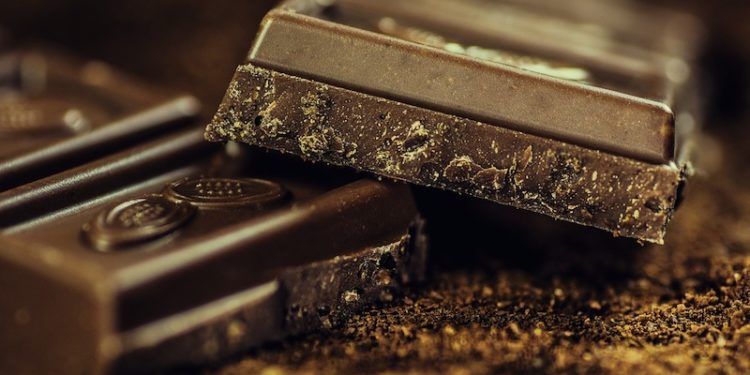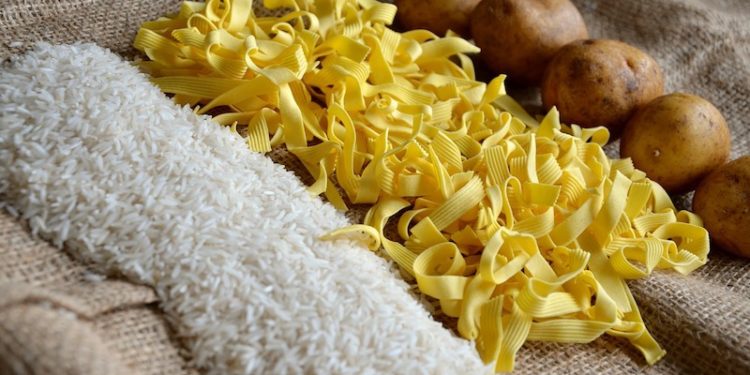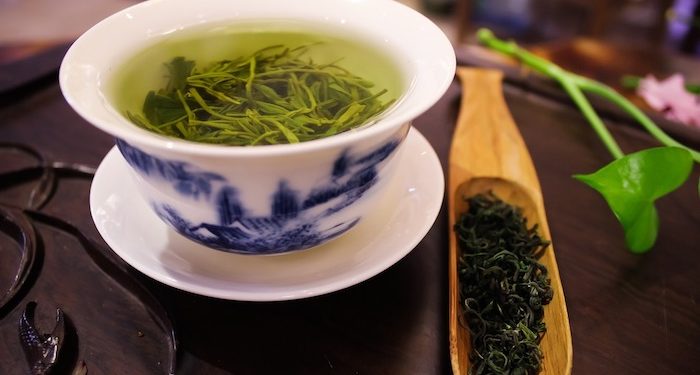About half of all Americans are trying to lose weight, and with the weight loss service industry being worth billions of dollars — some estimates put it at over seventy billion dollars — there are a lot of hucksters and well-intentioned-yet-misinformed people trying to cash in.
There are a lot, a lot, a lot of myths out there about the best way to lose weight and about nutrition in general: which macronutrients are worse (is it fat this year, or carbs?) and whether you can supercharge your liver with a detox tea. Trainer and big-time-Instagram-guy Jordan Syatt sat down with us to run over the worst myths in nutrition that need to die. Let’s get started.
Editor’s note: The content on BarBend is meant to be informative in nature, but it shouldn’t take the place of advice and/or supervision from a medical professional. The opinions and articles on this site are not intended for use as diagnosis, prevention, and/or treatment of health problems. Speak with your physician if you have any concerns.
1. You Don’t Need to Count Calories If You’re Eating Whole Foods
“You don’t need to count your calories if you want to lose weight,” says Syatt. “But regardless of whether or not you’re counting calories, your calories always count.”
No matter what, your body obeys the laws of thermodynamics and it runs on energy. Energy comes into the body by way of food and is often stored in the form of fat or carbohydrates (glycogen).
There are a lot of ways to control your calorie intake: maybe increase your fiber, increase your protein, lower your fat intake, all of these can work without an individual counting their calories. But they work because they (can) lead you to consumer fewer calories, which is what controls your waistline.
“It doesn’t matter if you don’t look at your bank account,” says Syatt. “If you’re spending all the money, it’s gonna drain. If you’re putting a bunch of money in, you’re going to save it up, regardless of whether or not you’re tracking it. This is what’s really important to remember about calories.”
The composition of calories changes, of course. If you’re comparing a 500-calorie salad with a 500-calorie cheeseburger, the salad probably has more fiber, vitamins, and minerals, it’s probably more filling, and all of this can contribute to better health and weight management. Just remember that even healthy foods contain calories.
[Related: Check out our podcast with Jordan Syatt]
2. So Long As You Are Counting Calories, You Can Eat Whatever You Want
Yes, your body weight is a matter of energy balance. If you are in a calorie deficit you will lose weight, in a calorie surplus you’ll gain weight.
But quality and quantity matter here. As mentioned above, different foods have different effects on your appetite, but it’s also important to note that your balance of protein, carbs, and fat will affect what kind of weight you lose or gain.
If you’re doing a smart workout program, you’ll lose more fat and retain more muscle in a deficit and gain more muscle and less fat in a surplus if you’re making sure that enough of your calories come from protein — usually 0.6 to 1 gram of protein per pound of bodyweight is recommended.(1)
Furthermore even if you hit the precise macro balance you’re aiming for to but you’re eating most of your calories from junk food and you’re not eating fruits and vegetables, you’ll run low on important nutrients like magnesium, zinc, B-vitamins, and plenty of others. If you’re low on these nutrients (or others) then performance in the gym can suffer, sleep can suffer, inflammation can increase, recovery can be impeded, focus takes a dive, immunity is compromised… the list goes on. (And on.) All of these can negatively impact your physique.
Quality and quantity matter when it comes to nutrition, don’t let anyone tell you otherwise. You can find room for “junk food” in your calories and still lose fat or gain muscle, but be mindful of your nutrients, macro and micro.
[Related: The Right Macros for Fat Loss vs Muscle Gain]
3. Keto Makes You Lose Fat Faster
“When people do keto they tend to lose weight faster, especially initially, because nearly eliminating carbohydrates causes the body to lose a lot of water weight,” says Syatt. “So they see very radical weight loss at the beginning, but then that’s why they have a plateau almost equally as quickly a few weeks later. Because they’re not just losing water weight, they have to lose fat now.”
The reality is that if you’re not in a calorie deficit, you won’t lose fat. Many keto proponents claim that keto causes the body to burn more fat for fuel, and while this may be true, this doesn’t seem to promote more weight loss when calories are controlled, according to a meta-analysis of thirty-two trials that compared carbohydrate intake.(2)
“The reality is you can do keto and see great progress, or you can not do keto and see great progress,” says Syatt. “As long as your calories are in check, you’re going to lose fat over time.”
For those who aren’t controlling calories, there is some evidence that keto can potentially be useful for managing hunger, which would result in weight loss. But again, that’s because there are fewer calories being consumed, not because keto is anything magical in that regard. And importantly, whether or not keto “works” or “feels good” or results in fewer calories being consumed really depends on the individual.
4. Carbs Make You Fat
This is a little related to keto, but irrespective of fat intake, many try to limit carbohydrates in general (bunless burgers, riceless burritos, etc.) because of a fear that carbs lead to fat gain.
Now, if you’re cutting carbs and not replacing them with anything else, then you’ll be consuming fewer calories and that’ll lead to weight loss, all else being equal. But for many people, dropping carbs means dropping fiber (perhaps the best natural appetite suppressant there is) and they can wind up eating more calories as a result.
Plus, carbs are often great sources of nutrients! Fiber, again, is great, with links not only to weight loss but also to lower risks of bowel cancer, Alzheimer’s disease, and more.(3)(4) But legumes, whole grains, and fruit are also jam packed with vitamins, minerals, phytonutrients, and antioxidants that may lower the risk of practically every disease there is. So there are plenty of reasons to limit refined carbs like sugar and white flour — they’re not filling and very low in fiber and nutrients — but it’s really important not to throw the baby out with the bathwater when it comes to carbohydrates.
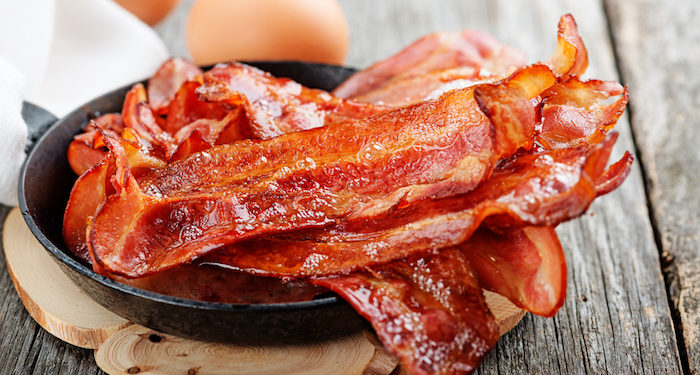
5. Fat Makes You Fat
“This idea that fat makes you fat is bullshit,” says Syatt. “And we know it because there are many people eating very high fat diets, like the ketogenic diet, and losing fat. If fat made you fat then anyone doing keto would immediately be obese. I’m not against keto, I’m just for whatever works for you. ”
Keto isn’t inherently bad for you. Carbs aren’t inherently bad for you. Fat doesn’t make you fat. Eating too many calories makes you fat, end of story.
There is a little caveat here: fat has more than twice the calories of protein or carbs, with nine calories per gram versus four calories per gram. So ten grams of fat will make you “fatter” than ten grams of chicken breast, if you’re already eating over your daily calorie burn.
But that doesn’t mean you should eliminate fat: it serves really essential functions like maintaining hormonal health and improving your absorption of important nutrients, like Vitamin D. If you have a diet without any fat at all, you won’t last long, and if you have a diet that’s deliberately, extremely low in fat, then important hormones like testosterone will take a hit.
[Related: The Best Natural Ways to Increase Testosterone]

6. Fat Burners Will Get You That Six-Pack
You’re looking for a shortcut? You got it! Just grab a fat burner and your six pack will be waiting for you at the end of the bottle.
We’re kidding. That’s not how they work.
It’s not that fat burners are ineffective, exactly. There are some studies that have found that cayenne pepper, for instance, which is in just about every fat loss product out there, does increase the amount of calories you burn. But a lot of studies put it in the area of 5 to 10 calories, and some research shows no effect at all.(5)(6)(7)(8)
Some studies put it higher, at 50 calories, but that’s still just half a tablespoon of peanut butter — not actually that much in the grand scheme of things.(9)
Now for some people, that still matters a lot. Let’s say you’re a bodybuilder, you need to have 1,900 calories, but you just cannot have less than 2,000 calories without feeling extremely deprived. Popping a fat burner might be useful in that instance, as there are plenty of fat burners that probably burn around one to two hundred calories.
But you have to remember:
- Fat burners are only useful if you’re monitoring your calories.
- Some research suggests they may lose some of their effectiveness over time, and
- When put in perspective, the effect is relatively small.
“The reality is if your training isn’t in check and your nutrition isn’t in check and your sleep isn’t in check, you have no reason to buy fat burners,” says Syatt.
7. You’re One Detox Away From Perfect Health
Do detoxes cleanse your system and wash out all the dirty toxins you have?
“The reality is this: detoxes and cleanses don’t do anything for you,” says Syatt. “There’s zero research to support it whatsoever. A very simple question to ask people trying to sell you detoxes and cleanses is ‘which toxins are these cleaning out, specifically?’ They’re always at a loss for words.”
When people claim detoxes are scientifically backed, it’s usually because
- It contains antioxidants, which help the body to fight free radicals, which contribute to aging — some like to call free radicals ‘toxins.’ Or,
- It contains milk thistle.
Some studies have found that people who are hospitalized with liver issues might experience a slight improvement in some symptoms in conjunction with other treatment methods when they’re supplementing with a little milk thistle.(10) Marketers will see studies like that, conclude that milk thistle helps your liver work, your liver helps you filter waste, therefore milk thistle detoxes you. There’s no evidence for this for people with a healthy liver.
“If your liver isn’t functioning properly, you should see a fucking doctor!” says Syatt. “Not a fake a detox tea from someone selling diarrhea nonsense on Instagram. Don’t trust the influencer, go to a doctor if your liver isn’t working properly.”
8. High Protein Diets Are Bad for Your Kidneys
There’s no good evidence for this. Some older studies from the 1980s found that eating more protein resulted in more waste filtration from the kidneys, so they thought the kidneys were undergoing unnecessary stress.(11) But later studies found that wasn’t the case for healthy kidneys, and some research has even looked specifically at athletes consuming well over a gram of protein per pound of bodyweight, and didn’t find signs of kidney issues.(12)(13)(14)(15)
Sometimes, people with kidney problems are often advised to go on low protein diets, yes.(16) But people with broken legs are also advised not to run marathons. If you’re healthy then evidence suggests high protein diets are fine.
[Related: Our full article on protein intake and kidney function]
9. Eating Before Bed Makes You Fat
Fortunately, this isn’t true.
“I love eating before bed, I eat a lot of food at night, and one of the easiest ways to dispel this myth is to look at all the research surrounding intermittent fasting,” says Syatt. “People basically save the vast majority of their calories before they go to bed, and what we’ve consistently found — and it sounds boring and obnoxious, but it’s true — as long as you’re in a calorie deficit, you’ll lose fat.”
That’s the reality. A calorie is a calorie at 8am and 8pm, it doesn’t matter what time you’re eating, it matters how much you’re eating. That’s it.
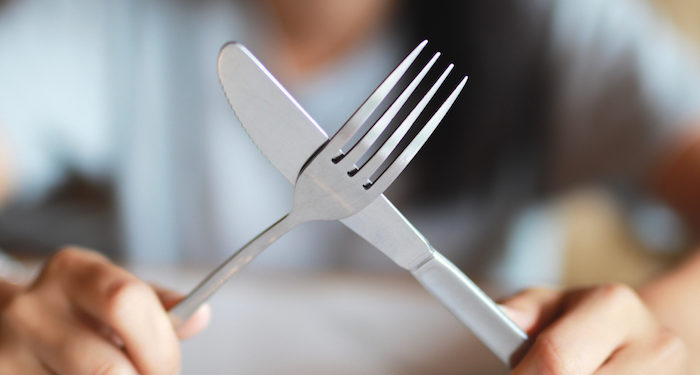
10. Fasting Makes You Fat
If you read muscle mags in the ’90s, there’s a good chance you heard that eating six small meals a day “boosts your metabolism” and makes you burn more fat. Or conversely, that not eating frequently — say, skipping breakfast — causes you to gain fat.
Not true. Skipping a meal or two isn’t going to slow down your metabolism or cause you to burn less fat.
A lot of people will tell you that because fasting increases the amount of growth hormone in the body, fasting helps you to build muscle. It’s true that fasting has been seen to up your growth hormone, but this hormone really is more about preserving muscle — it means that if you skip a meal or two, your body won’t start eating all its muscle in some kind of “starvation mode.”(17)(18)(19) You can eat when you want. If you prefer six meals a day, that’s fine. If you’d rather save your calories for the end of the day, it doesn’t look like it’ll make much of a difference.
OK, maybe if you’re trying to win the Mr. Olympia competition, you’d rather have ten meals to keep muscle protein synthesis as consistent as possible. But for the average person, even the one with a six pack, meal timing has no real, practical benefit. A 2016 study had a great example: when comparing people trying to lose weight over a period of eight weeks, people eating every day lost as much weight as people eating every other day when the calories were the same.(20)
If fasting helps you control your calories better, or if not fasting helps you control your calories better, then do what works for you! Neither is really that superior; it comes down to individual preference.
The Takeaway
“I think it’s a really important thing for people to take home,” says Syatt. “We’re not saying that fasting is better for you or worse for you, we’re saying that whatever you choose to do — fasting, keto, Paleo, Weight Watchers, whatever it is — do what you enjoy and what you can do consistently. And if someone’s trying to sell you something and shove one method down your throat and say everything else doesn’t work, don’t listen to them. Because what we’re trying to say is that everything works, as long as you can do it consistently and your calories are in check.”
References
1. Rodriguez NR, et al. Position of the American Dietetic Association, Dietitians of Canada, and the American College of Sports Medicine: Nutrition and athletic performance. J Am Diet Assoc. 2009 Mar;109(3):509-27.
2. Hall KD, et al. Obesity Energetics: Body Weight Regulation and the Effects of Diet Composition. Gastroenterology. 2017 May;152(7):1718-1727.e3.
3. Aune D, et al. Dietary fibre, whole grains, and risk of colorectal cancer: systematic review and dose-response meta-analysis of prospective studies. BMJ. 2011 Nov 10;343:d6617.
4. Cremonini AL, et al. Nutrients in the Prevention of Alzheimer’s Disease. Oxid Med Cell Longev. 2019 Sep 4;2019:9874159.
5. Chaiyata P, et al. Effect of chili pepper (Capsicum frutescens) ingestion on plasma glucose response and metabolic rate in Thai women. J Med Assoc Thai. 2003 Sep;86(9):854-60.
6. Snitker S, et al. Effects of novel capsinoid treatment on fatness and energy metabolism in humans: possible pharmacogenetic implications. Am J Clin Nutr. 2009 Jan;89(1):45-50.
7. Smeets AJ, et al. The acute effects of a lunch containing capsaicin on energy and substrate utilisation, hormones, and satiety. Eur J Nutr. 2009 Jun;48(4):229-34.
8. Galgani JE, et al. Effect of capsinoids on energy metabolism in human subjects. Br J Nutr. 2010 Jan;103(1):38-42.
9. Galgani JE, et al. Effect of dihydrocapsiate on resting metabolic rate in humans. Am J Clin Nutr. 2010 Nov;92(5):1089-93.
10. Saller R, et al. An updated systematic review with meta-analysis for the clinical evidence of silymarin. Forsch Komplementmed. 2008 Feb;15(1):9-20.
11. von Herrath D, et al. Glomerular filtration rate in response to an acute protein load. Blood Purif. 1988;6(4):264-8.
12. Knight EL, et al. The impact of protein intake on renal function decline in women with normal renal function or mild renal insufficiency. Ann Intern Med. 2003 Mar 18;138(6):460-7.
13. Beasley JM, et al. Higher biomarker-calibrated protein intake is not associated with impaired renal function in postmenopausal women. J Nutr. 2011 Aug;141(8):1502-7.
14. Antonio J, et al. A High Protein Diet Has No Harmful Effects: A One-Year Crossover Study in Resistance-Trained Males. J Nutr Metab. 2016;2016:9104792.
15. Poortmans JR, et al. Do regular high protein diets have potential health risks on kidney function in athletes? Int J Sport Nutr Exerc Metab. 2000 Mar;10(1):28-38.
16. Levey AS, et al. Effects of dietary protein restriction on the progression of advanced renal disease in the Modification of Diet in Renal Disease Study. Am J Kidney Dis. 1996 May;27(5):652-63.
17. Moller L, et al. Impact of fasting on growth hormone signaling and action in muscle and fat. J Clin Endocrinol Metab. 2009 Mar;94(3):965-72.
18. Vendelbo MH, et al. Exercise and fasting activate growth hormone-dependent myocellular signal transducer and activator of transcription-5b phosphorylation and insulin-like growth factor-I messenger ribonucleic acid expression in humans. J Clin Endocrinol Metab. 2010 Sep;95(9):E64-8.
19. Lanzi R, et al. Elevated insulin levels contribute to the reduced growth hormone (GH) response to GH-releasing hormone in obese subjects. Metabolism. 1999 Sep;48(9):1152-6.
20. Catenacci VA, et al. A randomized pilot study comparing zero-calorie alternate-day fasting to daily caloric restriction in adults with obesity. Obesity (Silver Spring). 2016 Sep;24(9):1874-83.
